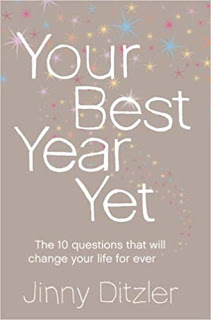
After the initial spurt of growing up and becoming an adult, most of us don’t stop to think about goals in the same serious way we did when we carefully planned our education, our career, our first place away from our parents. We begin to ‘follow our noses’, reacting to circumstances . . . Time goes by and soon we begin to feel our lives are out of control and there’s nothing we can do about it. Things which matter most to us aren’t getting enough attention and life gets frustrating. We feel we are no longer in charge of our own lives.
It’s broadly framed as a workshop to do at new year, though you can do it anytime, and is structured around ten questions. The first are about reviewing the year past. She claims:
Almost without exception, people’s initial thoughts about the past are negative. . . Unless we stop to think about what really happened, we assume that there is far greater cause for disappointment than celebration
. . . take note if you find it much harder to believe these experiences than the earlier examples of peoples’ problems
I recommend this book and have tried to put some of its steps into practice. It is remarkably difficult to give up one’s prejudice against self-help. The author notes:
Most of us trap ourselves by not being willing to take the necessary steps to be the master of our own lives, yet we’ll be damned if we’ll let anyone or anything serve as our master in the meantime! The result- no one’s in charge. We get nowhere. Every bit of true progress I’ve made in my life has come from really listening to a teacher or an author and having the discipline to practice his or her lessons until I have learnt them. Action and follow-through are everything.
